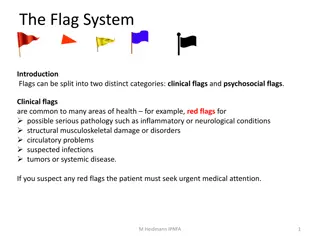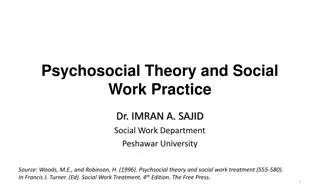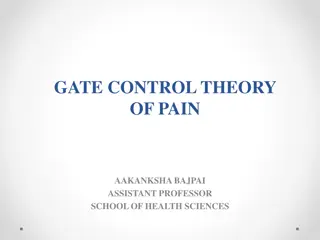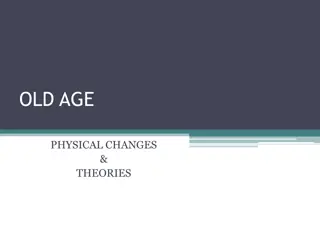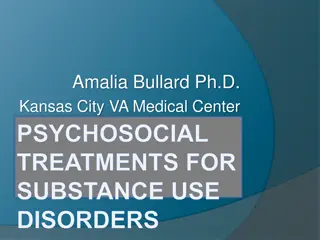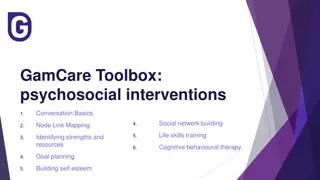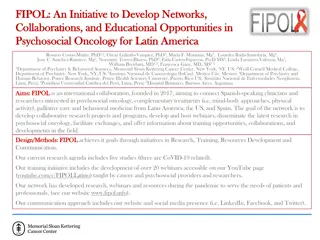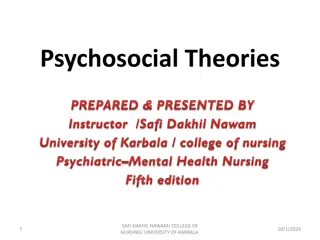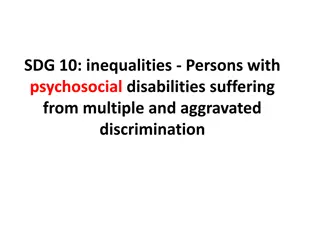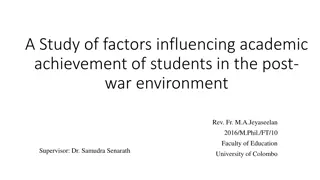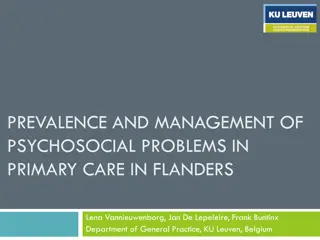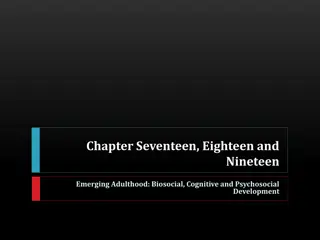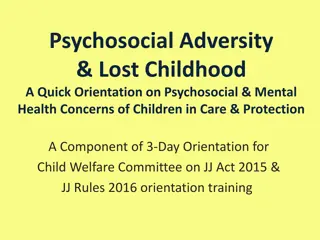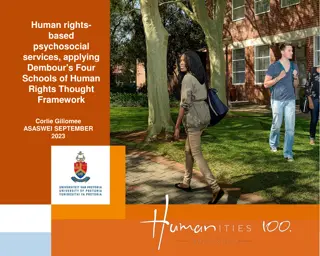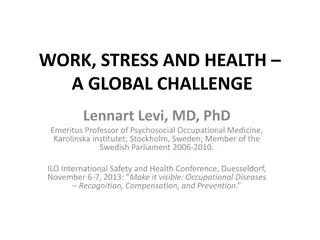Ginzburg Landau phenomenological Theory
The Ginzburg-Landau phenomenological theory explains superconductivity and superfluidity as distinct thermodynamic phases. It focuses on phase transitions characterized by singularities in specific heat at the transition temperature. Derived from BCS theory, it quantifies condensation energy, emphas
1 views • 38 slides
Crystal Field Theory in Transition Metal Complexes
Crystal Field Theory (CFT) explains the colors and magnetic properties of transition metal complexes. It focuses on the energy changes in d-orbitals of metal ions caused by surrounding ligands. This theory, developed in 1929, provides insights into the bonding interactions in complex compounds. The
10 views • 44 slides
Support and Unity Initiatives by ASSOCIATION FOR THE SUPPORT AND ENCOURAGEMENT OF UNITY CROATIA
Founded in 2014, this association based in Croatia focuses on promoting equality, peacekeeping, demining activities, and social solidarity. Their main activities involve educating civilians on mine dangers, psychosocial empowerment of children, and international experiences with victims of war and v
1 views • 10 slides
Understanding Social Learning Theory and the Power of Example
Social Learning Theory, introduced by Bandura, emphasizes learning through observation and modeling. It explores how individuals acquire behavioral dispositions, trial-and-error experiences, and the impact of stimuli in the environment. The theory focuses on the importance of attention, retention, a
1 views • 17 slides
Evolution of Mathematical Theories and Proof Systems
Development of mathematical theories such as model theory, proof theory, set theory, recursion theory, and computational complexity is discussed, starting from historical perspectives with Dedekind and Peano to Godel's theorems, recursion theory's golden age in the 1930s, and advancements in proof t
1 views • 29 slides
Introduction to Organizational Behavior: Management Theories and Practices
Explore the evolution of organizational behavior from early management theories to contemporary practices. Understand the historical foundations and relevance of management theory in shaping workplace dynamics. Delve into key concepts like Scientific Management, Administrative Management, Bureaucrat
1 views • 28 slides
Theories on the Origin of State: Divine, Force, Patriarchal, and More
Various theories such as Divine Origin, Force Theory, Patriarchal Theory, and others explain the origin of the state. Divine theories attribute state creation to God, while Force Theory emphasizes the strong subjugating the weak to establish authority. Each theory offers unique perspectives on the h
1 views • 24 slides
The Flag System: Identifying Clinical and Psychosocial Flags in Health Settings
The Flag System categorizes flags into clinical and psychosocial categories, such as red flags for serious pathology and orange flags for mental health issues. Psychosocial flags like yellow, blue, and black identify factors affecting recovery and return-to-work processes. Screening tools like PHQ-2
4 views • 7 slides
Understanding Forgetting: Theories and Influence on Memory Recall
Forgetting is a complex phenomenon influenced by theories such as Decay Theory, Interference Theory, and Motivated Forgetting. The Ebbinghaus forgetting curve highlights how memories fade over time. Decay Theory suggests memories decay over time, while Interference Theory explains how old and new me
0 views • 25 slides
Psychological Theories of Criminality: Understanding the Roots
Psychological theories of criminality delve into the association between intelligence, personality, learning, and criminal behavior. Major theories include Psychodynamic Theory by Freud, Behavioral Theory by Bandura, and Cognitive Theory by Kohlberg. These theories explore how unconscious mental pro
1 views • 20 slides
Understanding Psychosocial Theory in Social Work Practice
Social work practice has always integrated psychosocial concepts to address human well-being and social functioning. Psychosocial caseworkers aim to help clients navigate challenges stemming from environmental imbalances. The term "psychosocial" refers to the interaction of psychological and societa
0 views • 27 slides
Austin's Theory of Law by Rinkey Sharma: An Overview
Austin's Theory of Law, presented by Rinkey Sharma, delves into the Imperative Theory of Law as proposed by Austin, known as the father of English jurisprudence. It explores General and Particular Jurisprudence, Austin's definition of law, and the elements of positive law, emphasizing the concepts o
0 views • 11 slides
Theories of International Relations Overview
The field of International Relations (IR) encompasses various theories that seek to explain global phenomena, drawing from disciplines like history, philosophy, and economics. Theory, derived from contemplation and speculation, organizes ideas to explain issues such as state emergence, conflict caus
1 views • 47 slides
Understanding the Gate Control Theory of Pain in Pain Management
This detailed content delves into the Gate Control Theory of Pain, explaining pain pathways involving nociceptors, A-delta fibers, and C fibers. It further explores central pain pathways like the spinothalamic tract, spinomesencephalic tract, and spinoreticular tract. The theory's mechanism of pain
1 views • 11 slides
Understanding the Theory of Firms: Neoclassical vs. Modern Approaches
The theory of firms is explored through the Neoclassical and Modern perspectives. Neoclassical theory focuses on profit maximization, while Modern theory delves into managerial, principal-agent, and transaction cost theories. The discussion covers criticisms of Neoclassical theory and the essential
1 views • 79 slides
Understanding Physical Changes in Old Age and Relevant Theories
Late adulthood, typically starting around age 65, is a period where individuals confront the psychosocial task of integrity versus despair. Geropsychology plays a vital role in studying aging and providing clinical support. Erikson's ninth stage of psychosocial development suggests that older adults
1 views • 14 slides
Psychosocial Treatments for Substance Use Disorders: Strategies and Interventions
Delve into the world of psychosocial treatments for substance use disorders with Dr. Amalia Bullard at Kansas City VA Medical Center. Explore empirical-supported interventions, motivational interviewing, cognitive behavioral therapies, and more to understand the mechanisms of change and the importan
1 views • 91 slides
Theories of Causation in Psychological and Social Sciences
Overview of theories of causation categorized into psychological, social psychological, and sociological perspectives. Psychological theories focus on instinctive, biological, and psychological qualities of abusers, including Attachment Theory, Psychodynamic Theory, Social Learning Theory, and Situa
0 views • 15 slides
Understanding Political Theory through a Contextual Approach
Exploring G.H. Sabine's perspective on political theory through a contextual approach, emphasizing the importance of historical context and societal influences. Sabine argues that while political theory evolves with its contemporary politics, it should be analyzed within its specific time and social
0 views • 9 slides
Evolution of Light Theory: From Wave Theory to Quantum Theory
At the turn of the century, the discovery of the photoelectric effect challenged the wave theory of light, leading to the development of the quantum theory by Max Planck and Albert Einstein. This new theory introduced the concept of discrete energy units known as quanta, bridging the gap between wav
1 views • 62 slides
Psychosocial Care Training Workshop for Children in Difficult Circumstances
This training workshop focused on understanding children's psychosocial issues, linking child protection with psychosocial care, and developing essential skills for providing supportive care to children in challenging situations. Participants engaged in various interactive learning methods, includin
0 views • 85 slides
Dp-branes, NS5-branes, U-duality, and M-Theory Overview
Overview of Dp-branes, NS5-branes, and U-duality derived from nonabelian (2,0) theory with Lie 3-algebra. Introduction to M-theory, including M2-branes and M5-branes in the strong coupling limit. Discussion on BLG theory, Lorentzian Lie 3-algebra, and the ABJM theory for M2-branes.
1 views • 32 slides
Understanding Time-Independent Perturbation Theory in Quantum Mechanics
Perturbation theory is a powerful tool in solving complex physical and mathematical problems approximately by adjusting solutions from a related problem with known solutions. This theory allows for more accurate approximate solutions by treating the difference as a small perturbation. An example inv
0 views • 19 slides
Psychosocial Interventions in Problem Gambling: A Holistic Approach
Explore the comprehensive framework of psychosocial interventions for problem gambling, including motivational interviewing, cognitive-behavioral therapy, self-esteem building, life skills training, social network building, goal planning, and more. Learn about the core competencies needed for a reco
0 views • 46 slides
Ethical Theories: Divine Command vs. Virtue Theory Explained
Divine Command Theory asserts that morality is derived from God's commands, contrasting with Virtue Theory which focuses on developing moral virtues to achieve human flourishing and excellence. Divine Command Theory relies on religious texts, while Virtue Theory emphasizes the cultivation of virtues
0 views • 24 slides
Understanding Fermi Liquid Theory in Interacting Fermion Systems
Fermi liquid theory, also known as Landau-Fermi liquid theory, is a theoretical model that describes the normal state of metals at low temperatures. Introduced by Landau and further developed by Abrikosov and Khalatnikov, this theory explains the similarities and differences between interacting ferm
0 views • 23 slides
FIPOL Initiative: Developing Networks & Educational Opportunities in Psychosocial Oncology for Latin America
FIPOL, an international collaboration founded in 2017, aims to connect clinicians and researchers interested in psychosocial oncology in Latin America, the US, and Spain. Through research projects, webinars, and resources, FIPOL strives to advance the field and support patients and professionals, es
0 views • 4 slides
Computational Learning Theory: An Overview
Computational Learning Theory explores inductive learning algorithms that generate hypotheses from training sets, emphasizing the uncertainty of generalization. The theory introduces probabilities to measure correctness and certainty, addressing challenges in learning hidden concepts. Through exampl
0 views • 43 slides
Automata Theory and Theory of Computation Overview
This course overview covers concepts in automata theory and theory of computation, including formal language classes, grammars, recognizers, theorems in automata theory, decidability, and intractability of computational problems. The Chomsky hierarchy, interplay between computing components, modern-
0 views • 42 slides
Theories of Interest in Microeconomics II
Explore various theories of interest in economics, including the Classical Theory, Liquidity Preference Theory by Keynes, Productivity Theory, Abstinence Theory, Time-Preference Theory, Fisher's Time Preference Theory, and the Loanable Fund Theory. These theories offer different perspectives on the
0 views • 6 slides
Exploring the Evolution of Atomic Theory
Delve into the historical journey of atomic theory starting from Democritus and Aristotle's views to modern advancements proving some aspects of Dalton's theory incorrect. Learn about key laws and theories such as the Particle Theory of Matter, Dalton's Atomic Theory, and JJ Thomson's discoveries, s
0 views • 30 slides
Overview of Psychoanalytic Theories in Psychiatric Mental Health Nursing
Explore the fundamental beliefs and treatment modalities of psychosocial theories such as psychoanalytic, developmental, behavioral, existential, and crisis intervention. Learn about the influence of these theories on current nursing practices, with a focus on the foundational contributions of Sigmu
0 views • 40 slides
Addressing Inequalities Faced by Persons with Psychosocial Disabilities
Persons with psychosocial/mental disabilities globally experience discrimination, impacting their rights and opportunities. Violations include coercion, denial of legal capacity, limited access to education and employment, and more. International human rights standards, such as the CRPD, emphasize n
0 views • 7 slides
Factors Influencing Academic Achievement of Students in Post-War Environment
This study explores the impact of personal and environmental factors on academic achievement in the post-war context, addressing challenges such as psychosocial issues, low academic performance, and socio-economic factors affecting students' learning. Various research studies are reviewed to underst
0 views • 11 slides
Prevalence and Management of Psychosocial Problems in Primary Care in Flanders
This research project aims to assess the prevalence, presentation, and handling of psychosocial problems in primary care in Flanders. The methodology includes a mixed method approach using fishbone diagrams and interviews with health care professionals. Key findings include the conceptualization and
0 views • 18 slides
Insights on Emerging Adulthood and Psychosocial Development
Delve into the unique stage of emerging adulthood, spanning ages 18-25, characterized by factors like delayed marriage, higher education pursuits, and vocational instability. Explore themes of homeostasis, risk-taking behavior, psychopathology risks, and Erik Erikson's stage of Intimacy vs. Isolatio
0 views • 43 slides
Understanding Psychosocial Adversity in Children: A Comprehensive Overview
Exploring the deep-rooted issues of psychosocial adversity and lost childhood in children under care and protection, this orientation sheds light on the various challenges and dynamics involved. It delves into the profiling of children in difficult circumstances and highlights the different contexts
0 views • 26 slides
Human Rights-Based Psychosocial Services and Dembour's Framework
Human rights-based social work practice involves upholding principles such as human dignity, nondiscrimination, participation, transparency, and accountability. It is rooted in advocacy, activism, and the application of Dembour's Four Schools of Human Rights Thought to offer psychosocial support aft
0 views • 21 slides
Global Challenges in Work, Stress, and Health
The global challenges related to work, stress, and health are being addressed through various initiatives and reports. Lennart Levi, an expert in psychosocial occupational medicine, highlights the importance of recognizing, compensating, and preventing occupational diseases. The International Labour
0 views • 71 slides
Macromechanical Analysis of Lamina and Tsai-Hill Failure Theory Overview
The Tsai-Hill failure theory is based on the strengths of a unidirectional lamina, incorporating longitudinal and transverse tensile and compressive strengths, as well as in-plane shear strength. This theory, derived from the distortion energy theory, provides criteria for determining lamina failure
0 views • 15 slides







